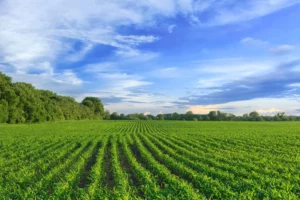In February 2024, Brazil witnessed transformative changes in its agricultural trade, responding effectively to both global economic shifts and environmental challenges.
This period illustrated the nation’s agility in adapting to an evolving agricultural landscape, leveraging both innovative technologies and strategic insights.
Corn exports diminish amid market realignments
Brazil’s corn exports saw a notable decrease, with 1.713 million tons shipped, a 24.67% drop from the previous year.
This decline, though significant, mirrored broader trends in global demand and domestic production shifts.

Nonetheless, the sector generated $413.113 million, emphasizing its resilience in fluctuating market conditions.
Soybean Production Faces Environmental Hurdles
The soybean industry, crucial to Brazil’s export economy, faced setbacks from unfavorable weather impacting the 23/24 season.
Predictions showed a 3.4% dip in production to 149.4 million tons. Particularly, Mato Grosso’s expected shortfall underscores the importance of strategic farm management to counteract these challenges.
In response to these adversities, technological solutions like PlantUP by Grupo ATTO offer vital support, enabling farmers to boost productivity without increasing costs.
This platform, analyzing over 23 million hectares, underscores the transformative potential of digital agriculture for strategic crop management.
Optimistic Projections for Wheat Production
Contrastingly, the wheat sector anticipates a 14% increase in output for the 2024–25 cycle, achieving 9.22 million tons, thanks to enhanced yields despite a smaller cultivation area.
This uptick reflects careful crop selection and strategic market positioning, especially against corn.
Brazil’s agricultural narrative in February 2024 showcases its dynamic response to global pressures and local challenges.
Embracing market insights, digital innovation, and supportive policies remains pivotal for Brazil to continue its leadership in the global agricultural market.

